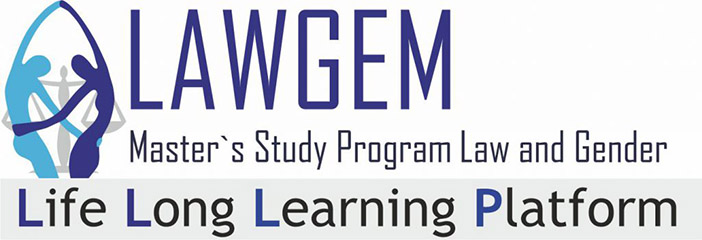Much teaching of law is focused around legal judgments. Whether relied on as the source of legal principles or else to illustrate the application of legal norms, judgments are central to legal education. Yet often, the gendered nature of judging remains cloaked and the law student blind to the systemic gender biases permeating this received wisdom. Feminist Judgments projects have aimed to correct this by creatively and critically rewriting judgments from a feminist perspective. They have highlighted the shortcomings of much of judging as we know it, and have provided a model for more gender-sensitive judging. The first iteration tackled English judgments, with subsequent feminist judgments projects in the area of Australian law, Northern/Irish law, US tax law, international law, and Scots law. These projects have revealed the need to incorporate women’s experience into decision-making and the formulation of legal rules, as well as to rethink more broadly what gender justice demands. While academic exercises, such projects nevertheless strive to be realistic and have exposed that judicial outcomes are not inevitable. They have also moved the debate from focusing solely on judicial diversity to investigating the substantive difference that a feminist approach to judging might make in real cases. However, these examples have so far been limited to Western legal systems and also mostly to those in the common law world. As part of a new research project, Dr. Suteu interested in exploring the question of what feminist judging might look like beyond these contexts. Her focus is on Central and Eastern European countries and the specific challenges and opportunities for feminist judging in the region. Not only are these countries part of the civil law tradition, and thereby their courts less likely to issue the type of discursive judgments familiar to the common lawyer, but they also operate under different constraints, including a propensity for formalism inherited from the communist legal method. The role of the judge in the legal process is different, as are the traditions, legacies, and unspoken norms. Legal education and the overall legal culture in these countries will present obstacles and openings unlike those of their common law counterparts. Last but not least, there has been strong backlash against gender equality in the region, as exemplified by the Bulgarian Constitutional Court’s 2018 ruling that the Istanbul Convention on violence against women contravenes the country’s constitution. The current climate therefore makes it that much more important to study, model, and push for feminist judging. This contribution of Dr. Suteu presented the key contours of this research project and highlight the relevance of a Feminist Judgments project for Central and Eastern Europe. It also explained the link between such a project and gender-sensitive legal education, with potential applications in a variety of taught legal subject
Dr. Silvia Suteu is Lecturer in Public Law at the Faculty of Laws, University College London. Her current research interests are in comparative constitutional law and constitutional theory. She is especially interested in the theory and practice of deliberative constitutional change, constitutional entrenchment and democratic theory (in particular eternity clauses), transitional constitutionalism, and gender-sensitive constitution-making. She has also done work in international humanitarian and human rights law. Her teaching at University College London includes courses on Public Law, Jurisprudence, Human Rights in the UK, Comparative Constitutional Law, Gender, Law and the State, and Comparative Human Rights Law. Dr. Suteu has provided legal expertise on constitution building to organisations including Democracy Reporting International, the Euromed Feminist Initiative, International IDEA, and UN Women. She published monograph Eternity Clauses in Democratic Constitutionalism, is forthcoming with Oxford University Press in 2021.

